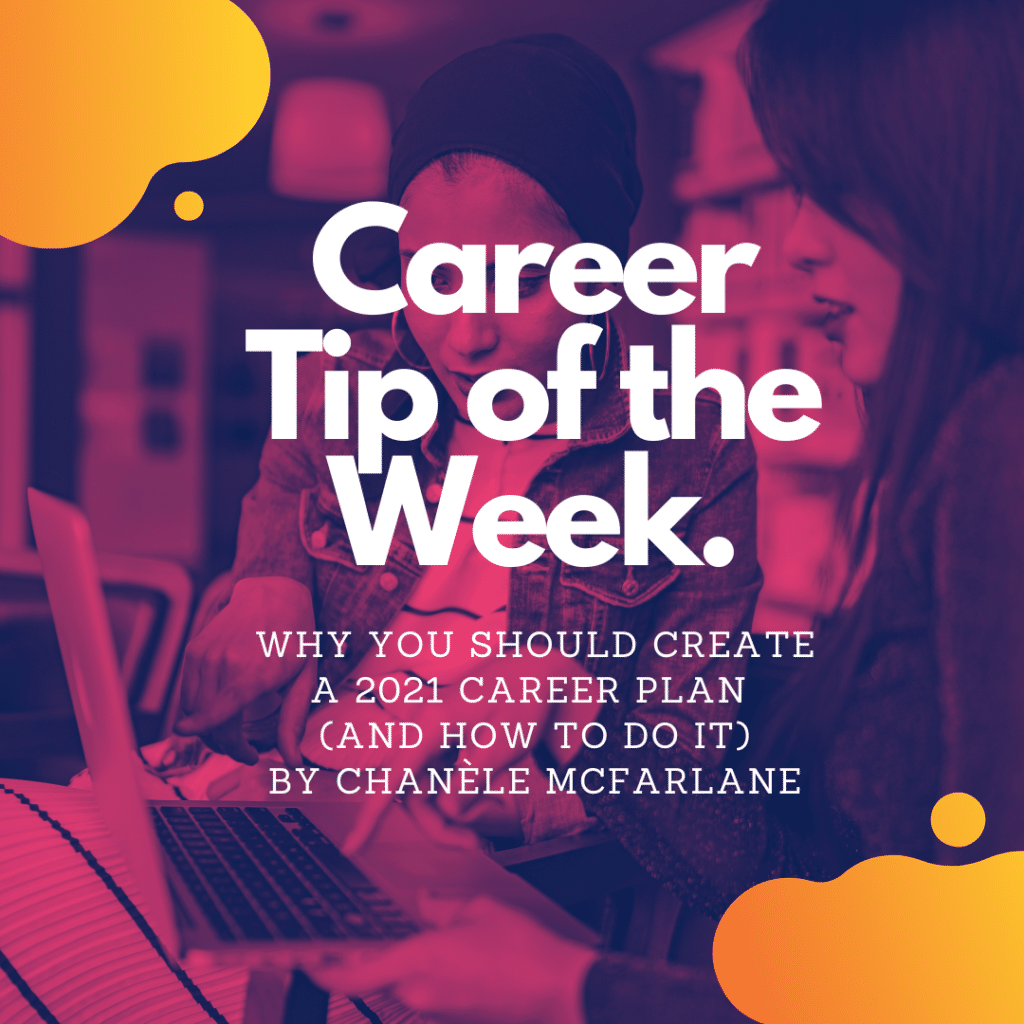By: Chanèle McFarlane
It’s officially 2021! It feels very different to previous new years though, right?
I mean, just take a moment to think back to exactly one year ago. Many of us cracked open our fresh new planners, designed our vision boards and began to write out the various goals we wanted to manifest in the year ahead.
And then…we were hit with a global event that none of us ever imagined we’d experience in our lifetime.
As we find ourselves once again at the top of a new year, it’s completely understandable if you’re feeling a bit anxious. This quote always guides me through periods of uncertainty: “
when nothing is certain, anything is possible”. I feel so empowered every time I read those words. We may have no idea what’s ahead of us but that just means that there are endless possibilities, especially when it comes to your career.
Yes, the pandemic has had a devastating impact on education, the job market and our careers but with the right plan in place, you can still achieve even your biggest career goals. Now, you may be reading that and wondering why you would even bother creating a plan in the face of so much uncertainty.
Truth is, we can’t afford to be passive with our careers at a time like this. We have to take control of our careers so that we have full ownership. This approach requires being proactive about our career management and not just waiting until we’re forced to at graduation and/or you find yourself on the job hunt.
Your career plan should include 4 key components:
Career Advancement
Take a moment and close your eyes. How do you envision your career unfolding?
- What will it take for you to actually get there? What could your path look like?
- What things do you need to do weekly? Monthly? Quarterly?
- How can you gain more experience? (For example, internships, volunteering, freelancing, etc.)
One of my favourite things to do when I was early in my career was to research the careers of people I admired. How did they get to where they are now? What courses did they take? What roles have they held? Thankfully, we have a platform like Linkedin where we can easily find this information all in one place. Having conversations with managers, mentors and/or teachers can also be extremely helpful in uncovering potential opportunities for you to advance your career.
Networking
I’m willing to bet that just by reading the word “networking”, it made your skin crawl a bit. If so, you’re certainly not alone but networking is so incredibly important as, after all, most people today find their jobs and other career-enhancing opportunities through their network.
In fact, in a
recent study that looked at people’s aversion to networking, it was revealed that the best way to overcome this is to think of networking as an opportunity to learn, grow and give.
With this in mind, here are some questions to help you create networking goals for your career plan:
- What would you like to learn and achieve through your network?
- What value can you share with your network in 2021?
- Who are the key people you should connect with to help you learn about your career interests?
- What platforms will you use to build and cultivate your network? (Hint: If you’re not already active on Linkedin, I highly recommend it!)
- How will you build new connections (i.e. virtual coffee chats and events, etc.) and how often will actively network?
But, of course, I know that networking looks and feels a lot different these days. My best advice for networking in today’s virtual world is to practice so that it begins to feel more natural. Set up weekly virtual coffee chats with old colleagues and acquaintances to get more used to it. You want to treat it like an in-person event – dress up, listen to music and perhaps even have a beverage on hand to best simulate an in-person conversation.
Personal Brand
Often when I chat with students and recent grads, they admit that they’re intimidated by the concept of personal branding. Compared to more seasoned professionals, they often feel like they don’t have what it takes to create an impactful personal brand.
Well, I’m here to tell you this: everything you need, already exists inside you.
Personal branding is not about fancy titles, awards and tons of work experience. All you need to build a strong brand is your story, passion and authenticity. You have to turn inwards and uncover what makes you, you.
Here are a few personal brand prompts to include in your career plan:
- What do you want to be known for?
- What topics are you most knowledgeable about? What topics and issues are you curious about?
- What is the impact you want to have on the world?
- How will you share your story and expertise with others? (For example, you could write articles, create videos, etc.) How often will you do this?
Truth is, COVID has created an ultra-competitive job market which has made personal branding a non-negotiable. As you’ll see in the questions I shared above, knowing the message you want to communicate via your personal brand is important but you must also have a plan to best showcase that message. Today, it’s not just about who you know but who knows what you know – which means you must ensure that you don’t just have a network but they have a strong sense of who you are and what value you can offer.
Learning
To compete in a post-COVID economy, it will be pivotal to prioritize upskilling so that you are always equipped with the skills required to succeed in the workplace. In fact, the
World Economic Forum recently reported that companies estimate around 40% of workers will require upskilling with critical thinking, problem solving and active learning in top demand.
Here are some thought starters to help you outline your learning goals:
- What are the learning opportunities you should be pursuing?
- What are the key skills that are in demand for your industry of interest? Where can you learn these skills?
One of the best ways to do this research is to read job descriptions. They actually serve as a great source of information because you can see what skills and responsibilities are required for your ideal role. Take note of what is listed as this serves as a great starting point for your learning goals. Remember, this doesn’t just have to be through formal education. There are so many easily accessible ways to learn like watching YouTube videos, listening to podcasts and reading books. It doesn’t matter how you consume the information, the key is to commit to a lifelong learning mindset if you truly want to accelerate your career.
Once you have a sense of what you’d like to achieve in each of the four areas, it’s important to now make each goal into a SMART goal. When a goal is specific, measurable, attainable, realistic and time-bound, you increase the likelihood that you’ll actually accomplish them.
Although there is power in creating a career plan,
you must also accept that plans will always change. Even when we’re not faced with a pandemic, there are always unexpected events that pop up that force us to adapt. After all, this is why resilience is now considered as one of the top skills for the future of work. Unexpected events aside, you may also change your mind which is completely normal! Have a plan but be flexible because as you learn about new areas and experience new things, you’ll likely want to make changes.
Remember, you are allowed to reinvent yourself as many times as you want.



